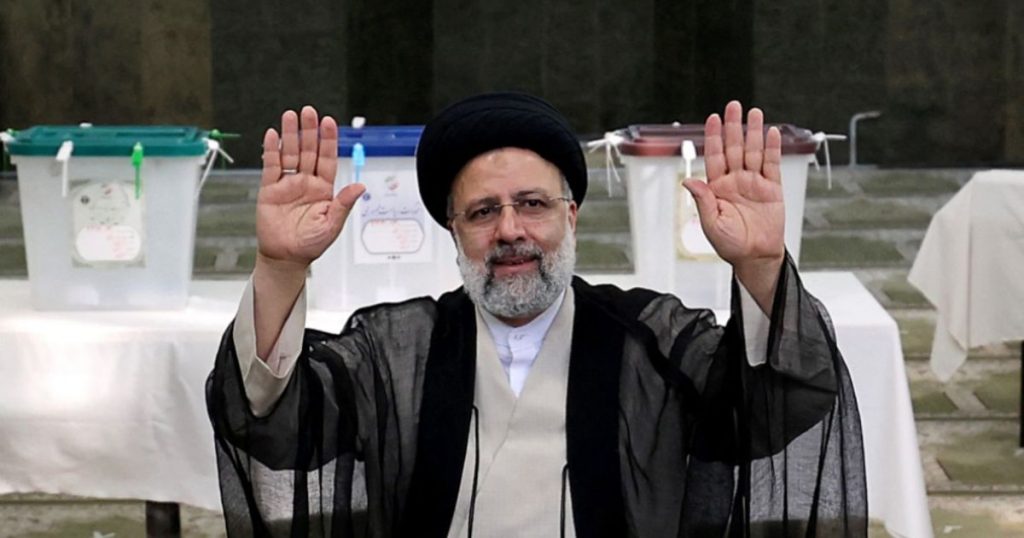A very conservative cleric with no political experience: As expected, Ebrahim Raisi won the presidential election in Iran. He will succeed Hassan Rouhani, who is no longer allowed to run for elections after two terms in office. According to the Ministry of the Interior, the hard-line top candidate and the establishment’s preferred president received more than 60 percent of the vote and clearly left the competition behind.
Accordingly, 17.9 million out of a total of 28.9 million voters voted for the president. The new president is scheduled to be sworn in in August.
The 60-year-old chief justice failed four years ago because of Rouhani, this time his path to the presidential office was much easier. This was also ensured by the so-called Guardian Council, which, as an electoral body, settled serious competitors before the ballot box. This has also led to violent protests in their own ranks – and to a great lack of interest on the part of the people in an election that was widely seen as orderly and undemocratic.
Accordingly, the 48.9 percent turnout was the lowest ever in the country’s presidential election – and was more than 20 percent lower than it was four years ago. In the capital, Tehran, voter turnout was said to be lower. In addition, according to the news portal “Khabar Online”, nearly four million blank ballot papers were submitted in protest. Observers interpret the low turnout among more than 59 million voters as a boycott of the elections and a warning sign for the entire institution.
With Raisi, there will be a change of political power in Iran soon. “I’m trying to solve all the knots,” he said after winning the election. Exactly how he wants to do it, he will explain on Sunday at his first press conference. As a long-running attorney general, judge, and chief justice since 2019, Raisi has little political experience. Now he is already facing various challenges at the start of his term: According to the media and observers, the deeply conservative cleric will not continue Rouhani’s moderate approach as president.
During the election campaign, Raisi promised a quick end to the stifling economic crisis. To do so, however, he would have to make an immediate decision on the future of the 2015 Vienna nuclear agreement. After the United States withdrew from the international agreement in 2018, Tehran gradually lifted agreed restrictions and controls on nuclear facilities. Not least, US sanctions have led to a severe economic crisis in Iran. In order for the agreement to continue—and until the crisis is over—negotiations with the archenemy, the United States, will be necessary.
So far it is not clear how Raisi, as a candidate for the hardliners, justifies negotiations with the “Great Satan”. His future Secretary of State and chief nuclear negotiator will play an important role in this, as the two will have to lead negotiations with the United States. In addition, Raisi is on both the EU and US sanctions lists for human rights violations. It remains to be seen whether the Europeans and the Americans, under these circumstances, are willing to negotiate with him.
In Middle East politics, observers under Raisi expect a more radical path, and with regard to Israel, a more aggressive path than before. It is also likely to continue to support anti-Israel militias and Syria’s ruler, Bashar al-Assad, on a more consistent basis.

“Food practitioner. Bacon guru. Infuriatingly humble zombie enthusiast. Total student.”








More Stories
Kyiv: Russian Kursk offensive halted
US Presidential Election: Former US Government Officials Warn Against Donald Trump's Election
Netherlands wants to leave asylum system